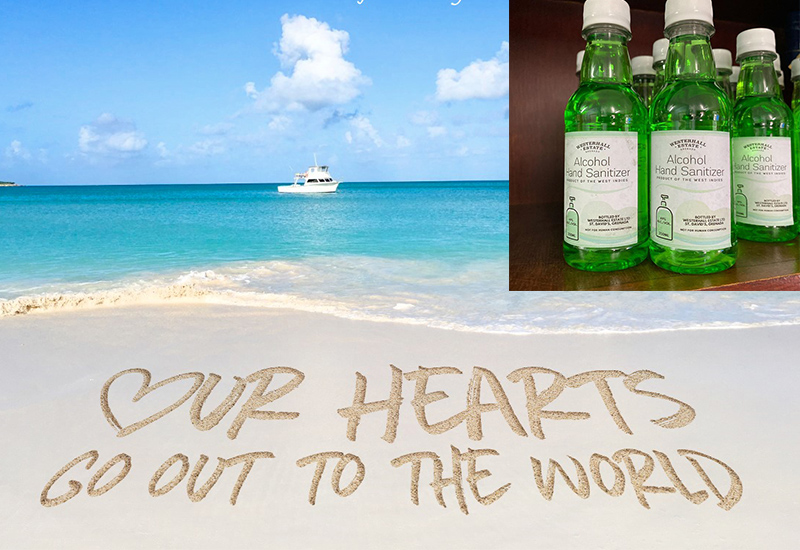
The usual inventiveness of Caribbean people when rising to a challenge has reached new heights with the spread of the virus COVID-19.
Caribbean Intelligence© has been tracking some of the more unusual and inventive ways to fight the virus and, also, to show a little kindness:
- Antigua and Barbuda proved that small can be beautiful by holding a virtual Parliament on 31 March. The 17 MPs in the House of Representatives met online to make changes to the country’s Amendments and Orders to the Emergency Act and its Quarantine Act.
- The Jamaican parish of Manchester has set up a Good Neighbour initiative to bring together an army of helpers for the elderly and for vulnerable people. Since the government has ordered people over 75 and those with underlying medical conditions to stay home, the initiative is aimed at filling the gap. Volunteers run errands, transport high-risk people and offer on-the-phone companionship.
- In the Diaspora too, kindness has grown in Caribbean communities. In the north-east London area of Edmonton, a Caribbean Connections Food Hub has been set up, to make sure that the elderly and people who had lost their jobs can still have access to food.
- The Bahamas has asked households to name one designated shopper during its lockdown. The plan is to introduce a shopping schedule with times based on people’s names, to control the flow of people going to stock up. Prime Minister Hubert Minnis urged Bahamians to stay home, stating: “This virus is harder and badder than even the hardest of heads in this country… There are still too many people on the road.”
- The Cayman Islands moved to a “soft curfew” between 5am and 7pm, with a “hard curfew” from 7pm to 5am. The daytime curfew allows people to go out for essential tasks. The soft curfew means not to move beyond your house and yard.
- Westerhall Estate in Grenada, a rum and gin distillery, has shifted some of its work to producing hand sanitisers for local distribution. The company plans to get 1,200 cases of sanitising solution to supermarkets and pharmacies island-wide. It will also be donating sanitisers to homes for children and senior citizens. With challenges comes innovation: the new line looks set to become a permanent fixture on the company’s production line.
- A Black British dance company, RJC Dance, has launched free daily online dance and fitness classes for people to enjoy during the lockdown. The workout music includes a range from reggae to soca and “mash-up”. It plans to introduce online classes for under-8s soon.
- Antigua and Barbuda’s Tourism Authority has launched a “Messages in the sand” project, which writes works of encouragement and kindness in the sand and records them. The first message, “Stay Safe,” appeared on 30 March on Fort James beach and was posted on social media. The Authority has invited people to send messages for sharing in the sand via
We’d like to add: “Thank you Antigua and the wider Caribbean. Keep up the good job.”
Related articles:
An ill wind: After the storms, the Caribbean's learning curve
Caribbean sustainability and combatting climate change
After the hurricane: Keeping up with Roosevelt Skerrit